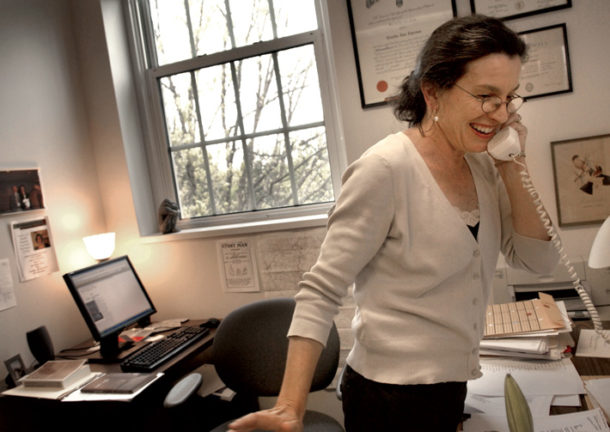The Free Lance-Star published this memorial to longtime Mary Washington professor and poet Claudia Emerson on Dec. 8, 2014. Emerson died Dec. 4.
Claudia Emerson, who passed away last week at the far-too-young age of 57, plied that most demanding and (to those who measure greatness by royalty statements) most unrewarding of writing professions. She was a poet – a great one.
Of all the forms of creative writing, poetry is the hardest and seems to draw the smallest audience. It is, and was to Ms. Emerson, a labor of love. Through her labors, she rewarded her readers with some of the finest poetry this country has produced in recent years. Among other praise, she won the Pulitzer Prize for poetry in 2006, while teaching at the University of Mary Washington, for her collection Late Wife. She was the state’s poet laureate from 2008–2010. She made her university and her city proud.
She left UMW after 15 years to take a position at Virginia Commonwealth University last year [2013], moving with her husband, Kent Ippolito, to Richmond. After she left Fredericksburg, though, she kept in touch with her former students, even while she spent much of the fall semester battling the cancer that eventually claimed her life.
Her boundless curiosity no doubt helped fire her genius. When she won a Guggenheim Fellowship, she took a sabbatical to study catacombs in Italy. While at UMW, she would sometimes look through the biology department’s catalog of birds, searching for the wings of inspiration.
She did not shy away from employing and exposing painful parts of her own life in her poetic quest. The collection that won the Pulitzer drew heavily on the breakup of her first marriage and the kindling of her relationship with the man with whom she would spend the rest of her life.
Fredericksburg played a role in her work. She and her second husband could be seen often walking alongside the Rappahannock Canal. In one poem, “The Hospital,” she writes of treading the canal path with her second husband, feeding the turtles and hearing “the red-winged blackbirds purr and call.”
She did not use her fame as a poet as an excuse to “mail it in” as a teacher, either. She encouraged her students, even the ones who were not inclined to be poets. She took time to show them the linkage between the poetic world and the prosaic, to expose them to poets they might never have known about otherwise. She tried to bring out the poet in her students.
In a world that needs poets more than it values them, Claudia Emerson will be missed.

